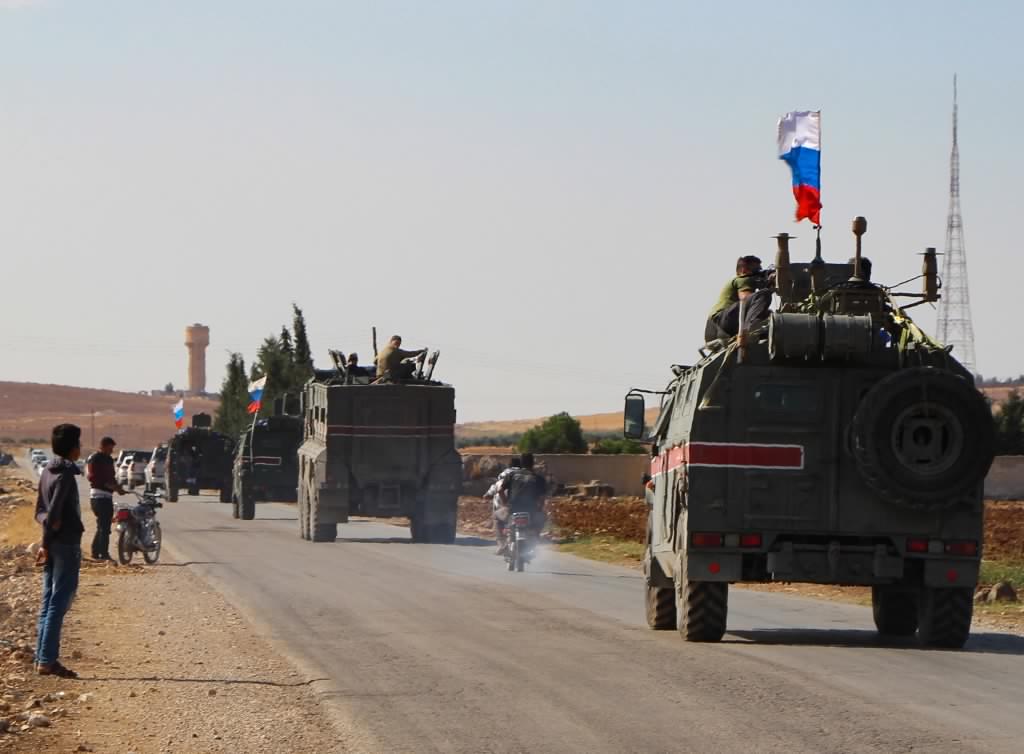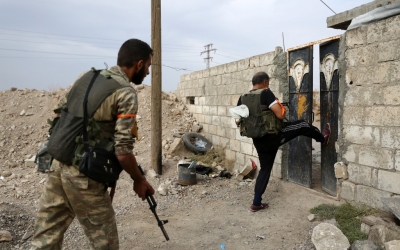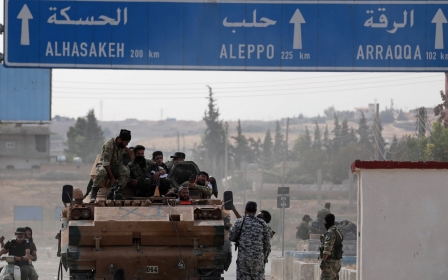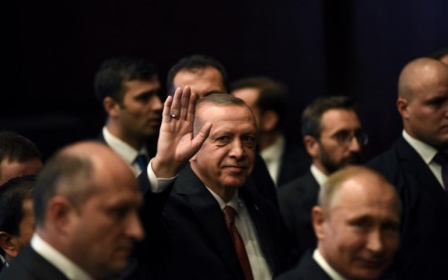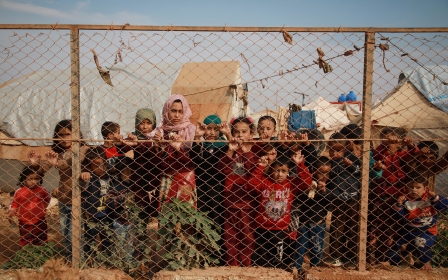Sochi agreement: A Russian overreach?
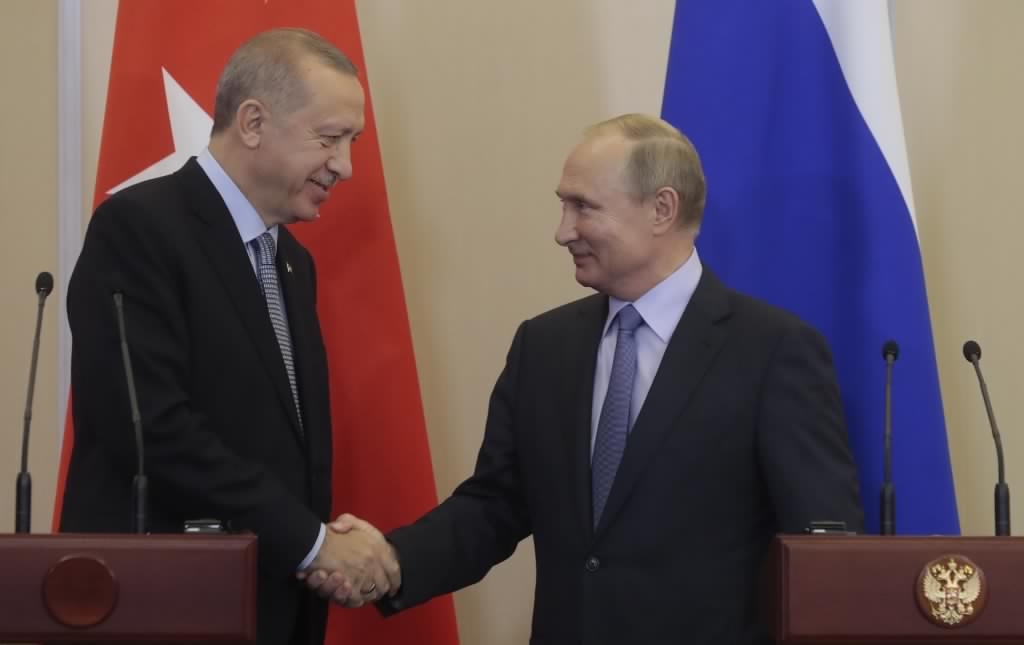
The Sochi agreement, reached this week between Turkey and Russia, has been hailed as a breakthrough deal that will extinguish the fires of war, combat terrorism, respect Syrian sovereignty, and restore diplomatic relations between Ankara and Damascus by resurrecting the 1998 Adana agreement.
Stepping into the void of US power in northeastern Syria, Russia has gained international respectability as a force for peace, even though the net outcome of the agreement is far from clear.
Joint patrols
The 10-point agreement adopts Turkey’s position for a “safe zone” along the Turkey-Syria border; envisions an enforcer role for the Russian military, with joint patrols of the area; and puts the Syrian army in charge of security of the surrounding region.
Some details have yet to be worked out, and there seems to be a slight difference in the Russian and Turkish interpretations, as Turkey insists on the full evacuation of Kurdish fighters from Manbij outside the declared “safe zone”, where the Syrian army, per a post-invasion agreement with the Kurds, has reentered after a long hiatus.
New MEE newsletter: Jerusalem Dispatch
Sign up to get the latest insights and analysis on Israel-Palestine, alongside Turkey Unpacked and other MEE newsletters
Assad reiterated his determination to stand up to the Turkish invasion using 'all legitimate means'
The Sochi agreement has sent shockwaves through Russia’s allies in Iran, Syria and Lebanon, who were reportedly not consulted about the agreement. They have been put in the uncomfortable position of having to refrain from overtly denouncing the deal, even though in their eyes, it legitimises Turkey’s invasion. With the help of its proxies, Turkey’s offensive has resulted in the mass displacement of close to 200,000 people.
According to a Tehran-based political analyst, who spoke to MEE on condition of anonymity, there is much concern in Iran and throughout the region over the “de facto annexation” of parts of Syria by Turkey under the guise of a “safe zone”. Yet, despite its misgivings, Iran needs to maintain cordial relations with both Russia and Turkey as it struggles against US sanctions.
A huge gamble
The only way Russia can guarantee the terms of the deal pertaining to the rights of local population, who are threatened with further mass displacement, is to have a substantial ground presence, something hitherto missing in Moscow’s Syria intervention.
The Syrian government remains hostile towards the Turkish military incursion, reflected in the post-Sochi official media coverage of northern Syrian villagers protesting against the Turkish “aggression”. Nor was a post-deal teleconference between Russian President Vladimir Putin and Syrian President Bashar al-Assad particularly successful, as Assad reiterated his determination to stand up to the Turkish invasion using “all legitimate means”.
By all indications, this is a huge gamble on Putin’s part, appeasing Turkey at a critical juncture when its invasion was stalled by fierce Kurdish resistance and the reentry of Syrian forces. Neither the Kurds nor the Syrian government support the imposed “safe zone”, which will inevitably lie in a state of tension with adjacent areas, from where anti-Turkish forces can launch counter-attacks.
It is therefore wishful thinking that the new buffer zone can end the conflict and realise Turkey’s dream of border security. By essentially pushing the border some 30 kilometres inside Syria, the operation could spark a new crisis, inviting a larger quest for Syrian territory in Turkey’s next operation.
Orderly repatriation
Both Tehran and Damascus favour the alternative of an orderly repatriation of Syrian refugees in Syria through direct Ankara-Damascus diplomacy, recalling Iran’s experience with millions of Afghan refugees after the 1979 Soviet invasion.
One of the principal problems with the Sochi agreement is that it ignores the realities on the ground. The deep roots of Kurdish-led local power and institutions cannot be wished away by labeling them as “separatists” and “terrorists”.
Putin will now have his hands full in a large swath of Syrian territory. By throwing his weight behind Turkey’s “safe zone”, opposed by some European governments who favour an alternative UN zone, Putin has entered into a Faustian bargain that could damage Russia’s relations with both Damascus and Tehran. Somehow, Putin’s government assumes it can support Turkey overtaking a large chunk of Syrian territory for an indefinite period, while simultaneously pretending to be a great defender of Syria’s territorial integrity.
If Putin is not careful, he may soon find his country on the list of “illegitimate foreign forces” in Syria due to this flagrant Russian overreach.
The views expressed in this article belong to the author and do not necessarily reflect the editorial policy of Middle East Eye.
This article is available in French on Middle East Eye French edition.
Middle East Eye delivers independent and unrivalled coverage and analysis of the Middle East, North Africa and beyond. To learn more about republishing this content and the associated fees, please fill out this form. More about MEE can be found here.



